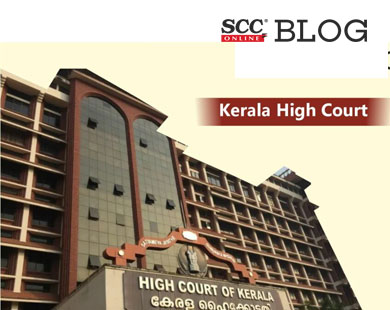Kerala High Court: In a petition questioning that can a ‘customer’ in a brothel be proceeded against criminally under the Immoral Traffic (Prevention) Act, 1956 (‘the Act’), Bechu Kurian Thomas, J. held that a ‘customer’ in a brothel can be proceeded against criminally under the provisions of section 7 of the Act, if the other conditions of the section are satisfied.
In the case at hand, the petitioner alleged that he had approached the ayurvedic hospital for treatment of his back pain and the doctor on duty prescribed an oil massage. While he was undergoing treatment, the police officers came to the hospital and arrested him as the petitioner was found in the company of two women, without any dress and engaged in a sexual act.
The petitioner submitted that even if the allegations are assumed to be true, still, he, being only a ‘customer’, cannot be proceeded against, as the statute does not contemplate prosecuting a ‘customer’.
The Court referred to the definition of the term ‘prostitution’ as defined in Sections 2(f) and 7 of the Act and various other provisions of the Act and said that section 7(1) penalises two types of persons for indulging in prostitution within the areas specified:
(i) the person who carries on prostitution
(ii) the person with whom such prostitution is carried on.
It also said that, under Sections 3 and 4 of the Act, a ‘customer’ is not included and only a brothel owner and a person who lives on the earnings of prostitution are included. Also, the words ‘the person with whom such prostitution is carried on’ does not appear in any other provision of the Act other than section 7.
The Court said that till the year 1987, the words used in the first part of section 7(1) were “women or girl who carries on prostitution…”. The words ‘women or girl’ were replaced with the word ‘person’ with effect from 26-01-1987, indicating that even a man can carry on prostitution. Thus, the words ‘person who carries on prostitution’ in section 7(1) of the Act includes the prostitute also.
The Court while reading the words “person with whom such prostitution is carried on” in conjunction with the definition of the word prostitution, said that the person who exploits or abuses the prostitute is the person with whom the prostitute carries on prostitution. Thus, it was held that the act of immoral traffic cannot be perpetrated or carried on without a ‘customer ‘and the legislature has intended the customer also to be brought within the purview of the penal provisions.
The Court further said that the Act is intended to be a deterrent against and prevent immoral traffic and in the absence of the customer falling within the penal umbrella of the statute, the objects of the enactment can never be achieved. Thus, it held that the words ‘person with whom such prostitution is carried on’ as appearing in section 7(1) of the Act will include a ‘customer’.
[Mathew v. State of Kerala, 2022 SCC OnLine Ker 6263, decided on 07-12-2022]
Advocates who appeared in this case :
For Petitioner: Advocate R. Santhosh Babu;
For Respondent: Public Prosecutor Noushad K.A.
*Apoorva Goel, Editorial Assistant has reported this brief.



